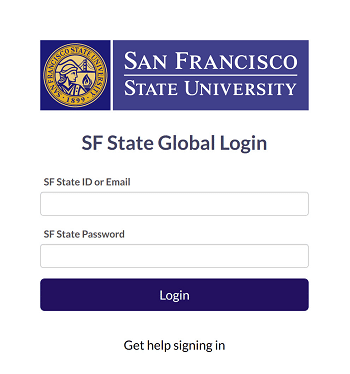Food is good for the body and it keeps us alive, but do you understand the chemistry of food components? Would you also love to learn how to improve food’s nutritional value, availability, and abundance? If yes, you’ll need to take a degree program in food science at one of the best food science schools in the world.
While food science pays well, nothing matches the feeling of sustaining lives and promoting good health, which a career in food science endows you with.
According to the World Health Organization, about 600 million people fall ill after eating contaminated food, and about 420,000 die yearly from the same cause.
Your job input as a food scientist helps reduce this number, but you won’t be well equipped for this task if you don’t attend a reputable food science school.
For this reason, we will show you the best food science schools in the world to major in food science. But first, you will need to know the kinds of degrees you need to start and excel in a career in food science.
You will get all these answers to questions you may already be asking on the topic in this post if you read to the end.
Table of contents
- What is Food Science?
- Why Study Food Science?
- What are the Educational Requirements for a Career in Food Science?
- What Can I Do With a Degree in Food Science?
- What are the Best Schools in the World for Food Science?
- Ranking Criteria
- #1. Jiangnan University – China
- #2. Zhejiang University – China
- #3. University of Wageningen – The Netherlands
- #4. China Agricultural University – China
- #5. South China University of Technology – China
- #6. University of Campinas – Brazil
- #7. Ghent University – Belgium
- #8. University of Massachusetts Amherst – United States
- #9. The University of Porto – Portugal
- #10. University of Sao Paulo – Brazil
- FAQs
- Conclusion
- References
- We Also Recommend
What is Food Science?
Food Science is not a single discipline. It is a discipline that combines chemistry, biochemistry, nutrition, microbiology, and engineering to understand the scientific aspects of food and solve problems associated with several areas of the food system.
According to Wikipedia, the scope of food science begins with agricultural science and nutrition; then, it progresses to the scientific aspects of food processing while advancing the development of food technology.
Food science is interested in using its multidisciplinary knowledge to study the nature of foods, the causes of food deterioration, the principles surrounding food processing, and the improvement of food for the consuming public.
Food science is a relatively new discipline. It started as a response to the social changes in North America and other developed countries. People in these regions demanded easy-to-prepare, convenient, sophisticated, and refined food products.
To contain this problem, the food industry requires highly trained scientists capable of understanding the complex chemistry of the food system and the knowledge of the methods of preserving them. Hence the birth of Food Science.
Passionate students, researchers, and food science professionals attend conferences and symposiums to enhance their knowledge of the field. Make plans to attend the Global Food Security Symposium Worldwide in the USA this year.
What are the Various Disciplines in Food Science?
The fact that food science is a multidisciplinary discipline makes it a broad one. You can take a particular interest in several subdisciplines in food science. They include:
- Food Chemistry: Here, you study the chemical processes and interactions of all biological components of food (e.g, meat, poultry, lettuce, beer) and the non-biological components.
- Food Physical Chemistry: This is an aspect of food chemistry, but here, you study the physical and chemical interactions of foods.
- Molecular Gastronomy: This involves the scientific investigation of the physical and chemical transformation of ingredients during cooking.
- Food Engineering: This deals with the industrial processes for manufacturing food.
- Food Microbiology: This subdiscipline concerns itself with the microorganisms that live in, create, or contaminate food as well as those that make food to get spoilt.
- Quality Control: Here, you’ll deal with the causes, prevention, and communication of food-borne illnesses. Hence, quality control is a subdiscipline that ensures that food products meet the written specification on the package.
- Food Preservation: This subdiscipline concerns the causes and prevention of quality spoilage.
- Food Substitution: This deals with the science of replacing fat, sugar, or calories in food products while maintaining their former shape, texture, color, or taste.
Why Study Food Science?
You may not need to go to school to learn what and what not to eat, but you need a formal education to understand the components of food to solve complex world problems. Your passion for food and nutrition will lead you to seek more knowledge, but this is not all there is to it.
Here are other reasons why people study food science:
1. Job Security
One certain thing in this life is that people must eat. Hence, the food industry will always be full of job opportunities. With a food science degree, you will never run out of a job in the food industry. Food companies will value you for your skills in food preservation, substitution, and whatever knowledge your degree bestowed on you. These are skills that are not very common.
2. Diverse Work Environment
It is not just the food industry; there are also a wide variety of jobs in different industries with a food science degree. Because the discipline is multidisciplinary, you can work as a quality controller, R&D personnel, Sales Executive, and even as a teacher in educational institutions, business firms, and government agencies.
3. High Earnings
You’ll make good dollars with a bachelor’s degree in food science. For example, the Bureau of Labor Statistics estimates the salary of Agricultural and Food Scientists in America to be $64,020 in 2018. This salary will, of course, increase with educational and skills advancement in the field.
4. Travel Opportunities
You’ll get a lot of travel opportunities to pursue a career in food science. This is because the food industry is global. So, depending on your position and job, you may have to move to different countries to offer your services or update your knowledge in the field.
What are the Educational Requirements for a Career in Food Science?
Depending on the position and career path you choose in the field of the science field, you will need an undergraduate or graduate degree. For example, a Bachelor’s degree in agricultural science or related sciences may be sufficient to get a job in farming and food processing technology.
However, food scientists who work in research positions at academic institutions must hold at least a master’s degree; while those who wish to teach in the field would need a doctorate.
So, here’s a breakdown of the degrees and educational qualifications you need for food science.
Bachelor’s Degrees
A Bachelor of Science in Food will typically grant you entry-level positions in the food industry.
The courses you’ll take in this degree will cover areas in food processing and packaging, agricultural analysis and chemistry, dairy biology, nutrition, and food law. One major benefit of a food science bachelor’s program is that most of them will offer you opportunities to gain hands-on industry experience through internships.
Graduate Degrees
Bigger positions in the food industry will require you to get a master’s or doctoral program in food science.
These degrees focus on advanced, specialized training incorporating classroom and laboratory instruction. Likely, courses you’ll take for a graduate degree in food science include food microbiology & chemistry, preservation, food safety, and research methods.
Some Ph.D. programs in food science will also involve teaching instruction or teaching assistantships. You’ll complete a thesis project or dissertation at the end of your graduate program.
Here are the Top 25 Masters Degree Scholarships to Study Food Science
What Can I Do With a Degree in Food Science?
Several opportunities abound for you globally and in your country once you have acquired a degree in food science.
Let’s look at the major job roles you can take with a food science degree.
Nutritional therapists understand complicated facts and concepts about food and nutrition, so they interpret them clearly and informally to their clients. These professionals help individuals live healthily by making dietary recommendations based on their circumstances. In the USA, nutritional therapists earn about $60,370 yearly.
Quality Assurance Managers ensure that food products meet the right standards stipulated in industry regulations. They also collect and interpret data on current standards and procedures to help make decisions that’ll improve them. Quality Assurance Managers earn $38,250 in the USA.
You need more experience than a food science degree to become a chef. But your degree will make you rise faster in the industry and earn as much as $48,460 in the USA.
Marketing managers in the food science field focus on the packaging, social media, consumer research, advertising, and brand building of their company’s brand. In the USA, marketing managers earn up to $147,240 yearly.
Toxicologists carry out studies on food, air, water, and soil to learn how different chemicals alter these subjects and pose harm to people. In the USA, Toxicologists earn about $71,498 per year.
Food scientists and technologists work closely with production teams to research and develop innovative food recipes that meet certain conditions. Some of these conditions include low-fat, low-sugar, and convenient meals. In the USA food scientists earn about $72,570 annually.
What are the Best Schools in the World for Food Science?
Several schools in the world offer Food Science so much that it has become increasingly difficult to select the best schools in the world.
However, because some countries are more agricultural and food inclined, they have more schools ranking well for food science than others.
Here is the list of the best schools for food science in the world:
- Jiangnan University
- University of Wageningen
- South China University of Technology
- University of Campinas
- Zhejiang University
- Ghent University
- University of Sao Paulo
- China Agricultural University
- University of Massachusetts Amherst
- University of Porto
Ranking Criteria
We considered the following in ranking these schools for food science.
- Global Ranking: We considered the ranking of two reputable world-ranking websites in selecting the best schools for food science. They are the Academic Ranking of World Universities (ARWU) for subject ranking and QS Top Universities for World University ranking.
- Number and Variety of Program: Although all the schools we listed offer food science, some have more concentrations (number) than others, while others have variety (levels of study). We added these two categories to get the schools’ total number of food science programs.
- Research Facilities: The more research facilities a school has for food science shows how dedicated they are to the discipline.
- Subject Accreditation: Subject accreditation is the least of our ranking factors because the Institute of Food Technologists (IFT), the most recognized accreditation body for food science, recognizes more US colleges than international universities.
We will proceed to describe these top food science schools in the world with the programs they offer.
#1. Jiangnan University – China
Program No: 11
Rankings
ARWU: #1
QS WUR: #101-150 (subject)
Jiangnan University is one of the most reputable universities in China. It is a key national university of the country’s project 211 and is run by the Chinese Ministry of Education. It began as far back as 1902 and has over 28,000 students studying undergraduate and graduate programs in Chinese schools.
Ranking 1 in ARWU as the best school in the world for food science, Jiangnan does not have the QS World University Ranking (WUR). However, based on subject ranking, QS ranks this Chinese University between 101-150 worldwide. Furthermore, IFT recognizes Jiangnan’s bachelor’s programs in Food Science, thus making it an outstanding international university.
Jiangnan University offers two bachelor’s programs in food science,, namely Food Science & Technology and Food Safety & Quality Control. It also offers a Master’s program in Fermentation Engineering and a Professional Masters in Food Safety & Quality Control.
Jiangnan ‘s major selling point is its Ph.D. programs. Six of them include Light Industry Mechanical & Packaging Engineering and Sugar Engineering.
#2. Zhejiang University – China
Program No: 12
Rankings
ARWU: #6
QS WUR: #54
If there is a university in China comparable to the Ivy League Universities in the USA, Zhejiang University (ZJU) is that university. It is China’s oldest, most selective, and most prestigious university.
However, unlike Harvard, Zhejiang University has a huge student population and a small faculty. According to Wikipedia, it has a total student population of 54,641 and an Academic Staff population of 3,741.
Nonetheless, ZJU is one of the best universities in the world to gain a degree in food science and technology. It ranks number 6 in ARWU as the best school in the world for food science and 54 in QS World University ranking.
ZJU does not have an IFT accreditation for its food science programs, but it has 5 institutes in the discipline dedicated to sustainable research in the field
Through ZJU’s College of Biosystems Engineering and Food Science, Zhejiang University offers 1 undergraduate degree, 6 master’s degree programs, and 5 Ph.D. programs in food science. See the link below for a comprehensive list of ZJU’s Food Science degree programs.
Read: Georgia Plant Food Educational Society Undergraduate Scholarships
#3. University of Wageningen – The Netherlands
Program No: 2
Rankings
ARWU: #2
QS WUR: #125
When you talk about food and agriculture in the world, you have to mention the Netherlands. The University of Wageningen (UR) started with a motto to explore the potential of nature to improve the quality of life. So, there is no way you talk about food science that you won’t mention UR.
This Netherlands University began in 1876 and consisted of Wageningen University and the former Agricultural Research Institute of the Dutch Ministry of Agriculture.
Ranking 2 in ARWU as the best school in the world for food science, Wageningen University & Research (WUR) ranks 125 in QS World University Ranking.
Also, like Jiangnan University, UR has a food science program that IFT recognizes. This is the University of Wageningen’s graduate degree program in Food Science.
Meanwhile, Wageningen University offers only two university degree programs in food science and technology. They are the BSc of Food Technology and MSc Food Technology.
However, the Master’s program allows you to choose from 9 specializations in food science in your first year and 3 research institutes primarily dedicated to food science and technology.
#4. China Agricultural University – China
Program No: 10
Rankings
ARWU: #3
QS WUR: #651-700
The name of the University sells it off already as one of the best universities in the world to get a food science degree program. China Agricultural University began in 1905 in Beijing, China, and almost 13,000 students took undergraduate and postgraduate programs at the university. The university took its present form in 1995, however, as a merger of the Beijing Agricultural Engineering University.
Ranking 3 in ARWU as the best school in the world for food science and between 651-700 in QS World University ranking, China Agricultural University takes a good stand as a global university for food science. Although IFT does not yet recognize this Chinese university’s food science programs, it has an outstanding six (6) research centers dedicated to food science and technology.
Furthermore, China Agricultural University, through its College of Food Science and Nutritional Engineering, has four departments for food science. They are the Department of Food Science and Engineering, Department of Food Biotechnology, Department of Nutrition and Food Safety, and Department of Viticulture and Enology. You can take four (3) undergraduate degrees through these departments, five (6) master’s degree programs, and a doctoral degree in Aquatic Products Process Engineering.
#5. South China University of Technology – China
Program No: 10
Rankings
ARWU: #4
QS WUR: #480
South China University of Technology (SCUT) started in 1952 and is located in the Tianhe District of China. It is a reputable university in China with a large reputation for engineering and science programs. According to Wikipedia, SCUT has a total student population of over 40,000 students, of which 1,829 are international students.
The South China University of Technology ranks 4 in ARWU as the best school in the world for food science and 480 in QS World University ranking. The university does not have an IFT accreditation for its food science programs. Still, through its school of Light Industry and Food Science, it offers a wide number and variety of degree programs in food science.
This school offers 2 undergraduate programs, 4 master’s programs, and 4 Ph.D. programs. The Bachelor’s degree programs are in Food Science & Engineering and Food Quality and Safety. The Master’s degree programs are in Fermentation Engineering, Sugar Engineering, Starch Resources Science & Engineering, and Food Science & Engineering.
Finally, Ph.D. programs are in industry and Food Science, Sugar Engineering, Fermentation Engineering, and Food Science & Engineering.
Here are International Scholarships for you to study at SCUT, once you’ve chosen the university.
#6. University of Campinas – Brazil
Program No: 4
Rankings
ARWU: #5
QS WUR: #214
Another country in the world that can comfortably boast of Agriculture and food production in Brazil. Hence, it would be a slight not to have a Brazilian University on our list of best universities for food science.
So, the University of Campinas (Unucamp) is one of Brazil’s universities at the forefront of food and science research worldwide. It began in 1962 in Sao Paulo and was affiliated with Washington University in St. Louis.
Unicamp ranks 5 in ARWU as the best school in the world for food science and 214 in QS World University ranking. Although Unicamp does not have an IFT accreditation for its food science programs, the Brazillian University offers Master’s and Doctoral Programs in the World that stands out from many food science and technology degrees.
Through its School of Food Engineering, Unicamp offers four Master’s and Doctorate programs in Food Science. Food Technology, Food and Nutrition, Food Engineering, and Communication. Furthermore, Unicamp is responsible for 15% of Brazilian research, which is true in the school’s food science research. Today, Unicamp is the reference for food science teaching and research in Brazil.
#7. Ghent University – Belgium
Program No: 8 + 1 Short Training
Rankings
ARWU: #7
QS WUR: #130
Belgium is another country in Europe remarkable for Agriculture and Food Security. Ghent University (UGent) is the first and only Belgian university on our best food science schools list. The university began in 1817 in Ghent by King William 1 of the Netherlands and has over 44,000 students.
Ghent University ranks 7 in ARWU as the best school in the world for food science and 130 in QS World University ranking. None of UGent’s Food Science programs have IFT accreditation, but its large number and variety of programs set it apart as one of the best universities in the world for Food and Science.
In addition to its 2 food and science degree programs for Bio Engineer, 2 programs for Industrial Engineer, 3 International degree programs, and 1 Exchange program, UGhent also offers a short training in Food Science. In total, UGhent offers 3 bachelor’s and 5 master’s programs in the food science field.
#8. University of Massachusetts Amherst – United States
Program No: 4
Rankings
ARWU: #9
QS WUR: #305
Many universities in the United States offer food science degree programs, but UMass stands out. The University of Massachusetts Amherst began in 1863 and had over 30,000 students taking one of its 109 undergraduate, 77 master, and 48 doctoral programs.
The university especially stands out in its doctoral research. It is among the R1 Doctoral Universities, which are universities with very high research activity.
ARWU places USP as the 9th best school in the world for food science and QS World University ranks it as the 305th university in the world. Strengthening its position as a global school for food science, UMass undergraduate and graduate food science programs have IFT accreditation.
It also has a world-class research facility for food science in its Fergus M. Clydesdale Center for Foods for Health and Wellness.
Through UMass’ Department of Food Science, UMass has 4 programs in food science that you can choose from. They are a B.S. degree in Food Science, Ph.D. in Food Science, M.S. degree in Food Science, and 1-Year Professional Masters Degree in Food Science
#9. The University of Porto – Portugal
Program No: 10
Rankings
ARWU: #11
QS WUR: #353
Portugal is another European Country that is outstanding for its contribution to food and agriculture. So, here is one remarkable university you can count on for a degree in food science – The University of Porto.
The University of Porto is the second-largest university in Portugal based on the student population. This university which started in 1836 in Porto, has over 30,000 students.
ARWU notes its research contributions to the field of food science, thus naming it the 11th-best university in the world to study food science.
On the other hand, QS places the University of Porto as the 353rd university in the world in its World University Ranking. The university’s food science programs also have accreditation by the Assessment and Accreditation of Higher Education Agency.
Finally, the University of Porto offers a Degree in Nutrition Science (BSc), 5 Master’s degree, and 4 doctorate degree in food science through its Faculty of Nutrition and Food Science, FCNAUP. See the full list of the University of Porto’s programs in food science
#10. University of Sao Paulo – Brazil
Program No: 2
Rankings
ARWU: #8
QS WUR: #116
You can’t mention universities in Brazil, and you won’t mention the University of Sao Paulo (USP). This is Brazil’s largest and most reputable university. According to Wikipedia, it began in 1034 and had a total student population of 92,792 students. USP’s degrees are undoubtedly one of the best in Brazil and the world, which is why it ranks well globally.
ARWU places USP as the 8th best school in the world for food science, and QS World University ranks it as the 116th university in the world. Notwithstanding that the University of Sao Paulo’s Food Science programs don’t have IFT accreditation, its College of Agriculture has one of the most dedicated research facilities for Food Science.
Its research focuses on food processing & quality, food & beverage biotechnology, food microbiology & good manufacturing practices, and food safety & applied nutrition.
Meanwhile, USP offers only programs in food science. They are Food Science (BSC) and Agronomics Engineering (BSc).
FAQs
To get a degree in food science, research for schools based on your country, countries abroad, or online offering a food science degree that meets your career goal. Read through the program requirements of the school whose program meets your need, ensure you meet their requirements, then apply.
With a degree in food science, you can be any of the following:
Food Scientists and Technologists
Nutritional Therapist
Quality Assurance Manager
Chef
Marketing Manager
Toxicologist
Procurement Manager
The best universities in the world for food science are:
Jiangnan University – China
Zhejiang University – China
University of Wageningen – The Netherlands
China Agricultural University – China
South China University of Technology – China
University of Campinas – Brazil
Ghent University – Belgium
University of Massachusetts Amherst – United States
University of Porto – Portugal
University of Sao Paulo – Brazil
Food Scientists need at least a bachelor’s degree from an accredited college to get entry-level job positions. Some students may go on to obtain their master’s or doctorate degrees. Meanwhile, the bachelor’s degree can be in food science, agricultural science, biology, chemistry, or another related fields.
Conclusion
Food science is a lot more than getting a degree. It is an attitude. A positive attitude to sustain and improve the health of people in the world. So, once you’ve got this attitude, you need to equip yourself with the best degree program in food science to help you explore better ways to enhance food availability, abundance, and nutritional value.
Several universities and colleges in your part of the world offer food science programs, but if you’re passionate about getting a degree that stands out globally, then we believe you found this article useful.
References
- Academic Ranking of World Universities (ARWU) – Shanghai ranking’s Global Ranking of Academic Subjects – Food Science & Technology
- QS Top Universities – What Can You Do With a Food Science Degree?
- McGill University – What is Food Science?
- Wikipedia – Food science
- Science Meets Food – Six Reasons Why You Should Study Food Science
- Study.com – Food Scientist: Educational Requirements for a Career in Food Science
- World Health Organization – Food safety
- Bureau of Labor Statistics – Occupational Outlook Handbook: Agricultural and Food Scientists
We Also Recommend
- 10 Best Schools for Creative Writing in the World
- 17 best Vet Schools in the World
- 13 Best Economics Schools in the World
- 27 Best Universities for Computer Science in the World
- 13 best electrical engineering schools in the World
- Agricultural Science Conferences for International Students
- Top 15 Ph.D. Scholarships for Agricultural Science Students
- TOP 11 SCHOLARSHIPS FOR WOMEN IN SCIENCE AND TECHNOLOGY
Does this article meet your immediate needs? If yes, leave us with a 5-star rating in the Review Box below. If no, leave us an opinion in the comment box to express your concern or ask a question and we will get back to you as soon as possible.





